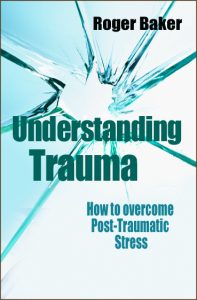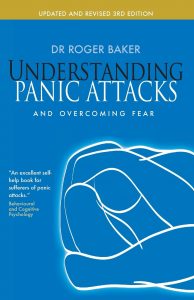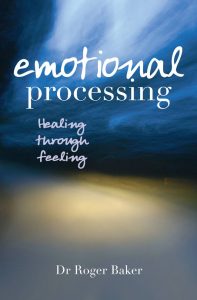BU Professor features in new Derren Brown podcast series exploring our emotions
Listen to the Derren Brown’s Boot Camp for Emotion podcast series on Audible
Emotional processing is…
Rachman
“a process whereby emotional disturbances are absorbed, and decline to the extent that other experiences and behaviour can proceed without disruption.”(1980)
Foa
“emotional processing is defined as the modification of memory structures that underlie emotions … new information, which is at once cognitive and affective, has to be integrated into the evoked information structure for an emotional change to take place.” Foa & Kozak (1986)
“a process that … constitutes the essence of recovery or emotional processing.” Foa, Huppert & Cahill (2006)
Baker
“It is clear from the analyses of this one type of stressor (a trauma) that ‘emotional processing’ refers to many different processes and mechanisms used by individuals in ‘coming to terms’ with the disturbance. ‘Emotional Processing’ can be thought of as an umbrella term referring to multiple mechanisms and processes which allow the person to move from emotional disturbance to resolution”. Baker, Thomas, Thomas, Santonastaso & Corrigan (2015)
References;
Rachman, S. (1980). Emotional processing, Behaviour Research and Therapy, 18, 51-60.
Foa, E.B. & Kozak, M.J. (1986) Emotional processing of fear: Exposure to corrective information. Psychological Bulletin 99, (1), 20-35
Foa, E. B., Huppert, J. D., & Cahill, S. P. (2006). Emotional processing theory: An update. In B. O. Rothbaum (Ed.), Pathological anxiety: Emotional processing in etiology and treatment (pp. 3–24). New York, NY: The Guildford Press.
Baker, R., Thomas, P., Thomas, S., Santonastaso, M., & Corrigan, E. (2015). Emotional Processing Scale Manual. Oxford, UK: Hogrefe.
WHAT IS EMOTIONAL PROCESSING THERAPY?
‘Most people successfully process the overwhelming majority of disturbing events that occur in this life’ Jack Rachman

Jack Rachman, who first defined emotional processing in 1980, regarded ‘successful processing’ of distressing events as the norm for most people. But what if the ‘disturbing event’ is so overwhelming, so traumatic, or if someone is just unable to process it? What happens then?
The event may be a recent one, such as a car crash, a divorce, or a death in the family that the person is struggling to accommodate, or it could be something which happened in the distant past. This event from the past may never have been properly dealt with at the time, put into cold storage, hoping it would disappear for ever, but the repercussions rumble on. It might have been bullying at school, sexual abuse, separation of parents or other disturbing events.
This is where Emotional Processing Therapy comes in. The purpose of Emotional Processing Therapy is to help people fully process those recent or past disturbing events in order to reach a level of calm where they no longer feel emotionally troubled.
Emotional Processing Therapy is a therapy that regards the person’s emotional life as the central point of treatment. It is all about emotions, how to deal with them and the best way to resolve emotional pain. Emotional Processing Therapy could be the main approach or an adjunct to other therapies. It is not the same as Cognitive Therapy, where thinking and cognitions are the primary focus, but it does share much with Person Centred Counselling and Trauma Focussed Therapy, but with much more explicit discussion of emotion. The Emotional Processing Scale is a central assessment tool to help therapists formulate the course of therapy.
The main elements of the therapy are described in:
![]() Trauma, Stress and Therapy describes how trauma and stress are common and require a more emotional type of therapy.
Trauma, Stress and Therapy describes how trauma and stress are common and require a more emotional type of therapy.
![]() “Free Chapter” Emotional Processing Therapy for PTSD is described as a free chapter from the paperback “Understanding Trauma; how to overcome post traumatic stress” by Roger Baker
“Free Chapter” Emotional Processing Therapy for PTSD is described as a free chapter from the paperback “Understanding Trauma; how to overcome post traumatic stress” by Roger Baker
This website describes the application of EPT to Psychogenic conditions, Multiple Sclerosis, Cancer, PTSD and in Group Therapy.
The emotional processing approach has been developed in three paperbacks on panic, post traumatic stress and what it means to have a healthy emotional life.


